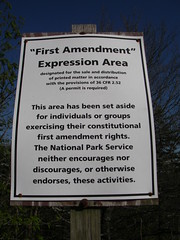Did you see the story last week that Paul Nungesser is suing Columbia University? He’s the student who is accused of sexually assaulting Emma Sulkowicz (and other students), which inspired Emma to create the performance art piece called “Carry that Weight†after he was cleared of responsibility in regards to her alleged rape by the school.
Visual arts major Emma created this piece for her senior thesis where she committed to carrying a mattress everywhere she went as long as she attends the same school as her accused attacker. Paul is suing the school, claiming that “Carry that Weight†is a harassment campaign against him and as a result, its damage to his reputation and job prospects. He also claims that he has been on the receiving end of pervasive threatening behavior by other students who call him a “serial rapist†when he attends school events.
(I must use terms like “accused†and “alleged†because this is a situation where the suspect has not been found guilty of any wrongdoing in a court of law. Please don’t interpret this to mean that I don’t believe Emma or any others who speak out about being sexually assaulted.)

This development in this situation leaves me frustrated and emotionally torn. On the one hand, I am a strong advocate of the idea that people are “innocent until proven guilty.†I believe in this ideology because I don’t want to see that justice system manipulated or people being punished based on one person’s word. I believe when a person is accused of a crime, they deserve in their day in court and that it’s the prosecution’s job to build the case against them.
On the other hand, my limited experience with the criminal justice system has taught me that sexual assault cases are very hard to prove. As a lawyer I find myself regularly quoting Tom Cruise’s brilliant line from A Few Good Men: “It doesn’t matter what I believe. It only matters what I can prove.†Sometimes justice can’t be done because the evidence isn’t there to paint a clear enough picture of what happened. That doesn’t mean that the victim isn’t telling the truth. Studies show that very few people lie about being sexually assaulted.
If Paul attacked Emma or any other student (and I believe he did), part of me endorses the idea that he and others like him that get away with sexual assault deserve the natural consequences of their actions. They deserve to have tarnished reputations and to be called out for the wrongdoings that they committed. It’s too easy for a rapist to go unpunished because there isn’t enough physical evidence and/or the statute of limitations has run out. And then they can turn around and victimize the person again by claiming they are being defamed when the victim has the strength encourage to call out their attacker for what they did.
Given that Paul is suing Columbia University and not Emma directly, I think he’s just trying to get money out of the situation. I would not be surprised if he filed this lawsuit in the hopes that the school will pay him a comfortable settlement in exchange for dropping the case.



![Reblog this post [with Zemanta]](http://img.zemanta.com/reblog_e.png?x-id=38c6d8a4-be05-4572-ab01-51474b99805d)